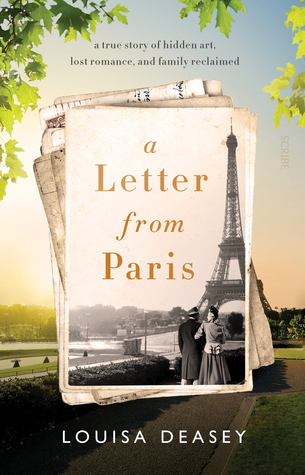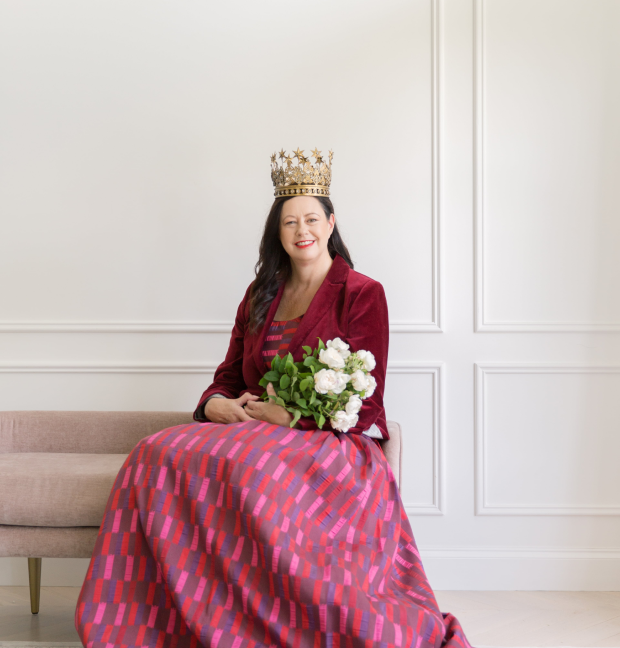
The Blurb (from Goodreads): When Louisa Deasey receives a message from a French woman called Coralie, who has found a cache of letters in an attic, written about Louisa's father, neither woman can imagine the events it will set in motion.
The letters, dated 1949, detail a passionate affair between Louisa's father, Denison, and Coralie's grandmother, Michelle, in post-war London. They spark Louisa to find out more about her father, who died when she was six. From the seemingly simple question 'Who was Denison Deasey?' follows a trail of discovery that leads Louisa to the libraries of Melbourne and the streets of London, to the cafes and restaurants of Paris and a poet's villa in the south of France. From her father's secret service in World War II to his relationships with some of the most famous bohemian artists in postwar Europe, Louisa unearths a portrait of a fascinating man, both at the epicenter and the mercy of the social and political currents of his time.
A Letter from Paris is about the stories we tell ourselves, and the secrets the past can uncover. A compelling tale of inheritance and creativity, loss and reunion, it shows the power of the written word to cross the bridges of time.
My thoughts:
Louisa Deasey’s father died just before her seventh birthday, leaving her with only a few memories and a strange sense of disquiet caused by the dismissive comments many in her family made about him. She knew that he was a writer, and that drew her because of her own writing dreams. Her relatives called him a ‘black sheep’, though, and said he had ‘squandered three fortunes’.
Then, one day, Louisa received a Facebook message from a woman in Paris named Coralie. She had discovered a cache of letters in the attic of her dead grandmother, Michelle. These letters – written in the late 1940s – revealed that Louisa’s father had once had a close and intimate friendship with Coralie’s grandmother. Enchanted at the prospect of finding out more about her elusive father, Louisa sets out on a journey to Paris, to meet Coralie and her family, and to follow the trail of clues the letters gave here about the missing aspects of her father’s life.
It’s a wonderful story. Her father proved to be an intelligent and talented man whose life was thwarted by the war, poverty, and his own ill health. He struggled to find his way in a broken world, when his talents and beliefs were at odds with 1950s society. Most heartwarming of all is the new friendships Louisa made in her quest. This is a book about the importance of human connection, and the need to understand one’s place in the world. I really loved it.
Please leave a comment and let me know what you think.
BUY A LETTER FROM PARIS NOW
